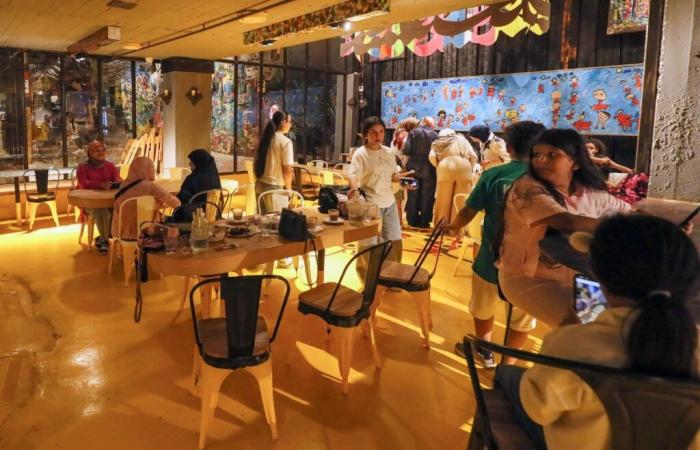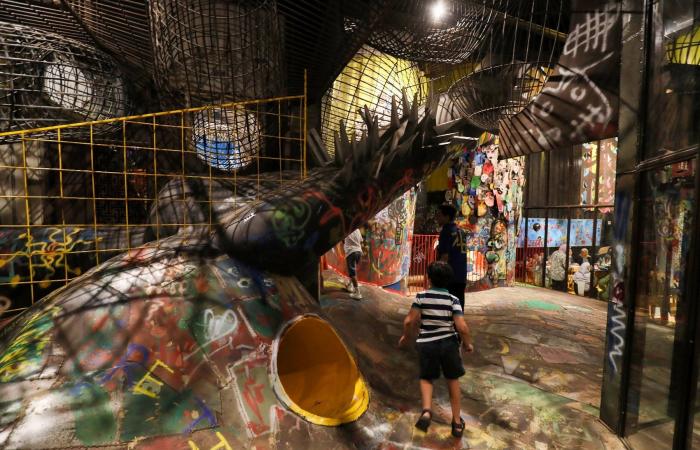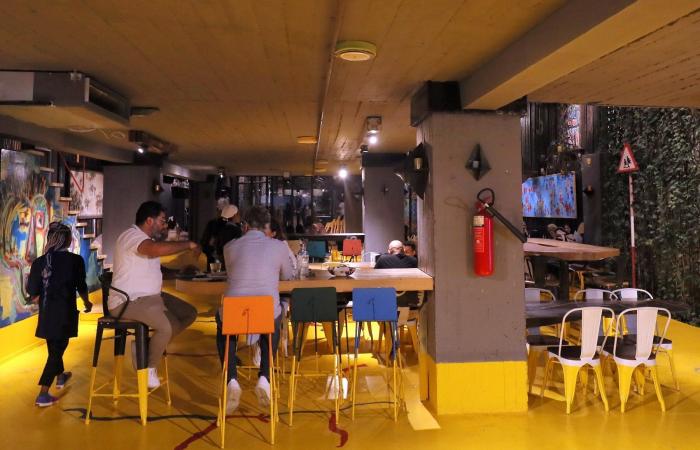Behind a high white surrounding wall, Café Lamma (“gathering of friends” in Libyan dialect) betrays nothing of its unusual interior universe.
Located in a residential area in the west of the Libyan capital, Tripoli, it is a café, a cultural space and an art gallery exhibiting Libyan artists who come to hold workshops there.
“We use materials abandoned in the streets, like rubber from tires, wood from trees or construction sites, to show people that what is thrown away and looks ugly is actually valuable,” Louay explains to AFP Omran Burwais, designer of the place.
An architect by training, Mr. Burwais and his team are counting on a change in mentalities in an ultra-consumer Libyan society where notions of recycling and ecological practices are practically non-existent.
As soon as you push the heavy metal entrance door, a labyrinth leads visitors to a central patio housing a café-restaurant lit by skylights and lined with green walls. In the American-style open kitchen, chefs and baristas are busy preparing food and drink orders.
“Currently there are no other places like this in Libya. We base everything on an aspect that we consider very important: recycling. We never use plastic, whether for plates or the glasses, everything is made of glass”, specifies Roula Ajjawi, director of the Lamma cultural center.
Floors and walls do not respect any straight line and hide unexpected spaces where an explosion of color attracts children to play areas.
Between bursts of laughter and joyful cries, they are free to run everywhere, have the right to move furniture or scribble on the walls without fear of reprimands, to rush into tunnels or sit in traps to read a book borrowed from the library.
On Thursday, the day before the weekend in Libya, workshops are organized at Café Lamma to introduce them to art, accustom their eyes to what is beautiful and harmonious and encourage them to give free rein to their imagination.
Libya, led by two parallel governments, one in the eastern part of the country and the other in the west, is struggling to recover from more than a decade of political divisions and fratricidal violence that followed the fall and death of dictator Muammar Gaddafi in 2011.

Mr. Burwais assumes that visitors to Lamma recognize the objects used in the design of the place but “will look at them differently from now on”.
“We’re looking to build a new mentality here,” he says.
In Libya, whether it is plastic, packaging of various types, glass, wood, paper or iron, nothing is recovered or reused. Worse still, waste often ends up abandoned in nature or on beaches, carried by rain and wind.
With such an initiative, objects taken out of dumpsters or landfills become works of art and the idea appeals to Café Lamma regulars.
“I like the place. The food is good, the services are excellent. I also liked the principle of not wasting, and even the way the water is served (in glass bottles, Editor’s note) I like “In reality, all the ideas promoted here are fantastic,” says Lamma’s loyal customer, Riyad Youssef.








